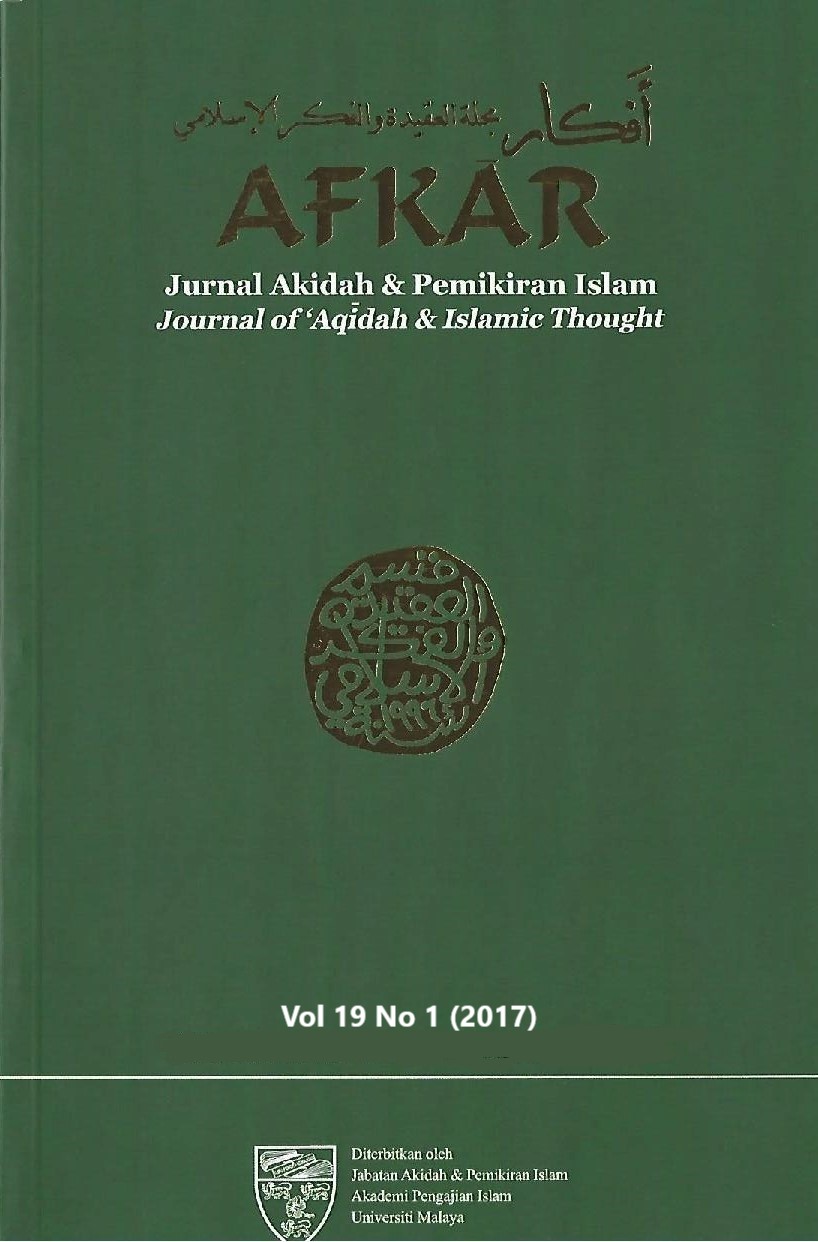Knowledge and Islam on the Non-Rational and Rational-Heart-Brain Inter-Connection: A Classical Islamic Scholarly Perspective
Main Article Content
Abstract
This study examines knowledge in some depth within the Islamic traditional scholarly framework with the aim of understanding its nature, cause and source, as well as trying to find out its inherent interconnections within contemporary society. It is found that the transmission of knowledge to the intellect takes many forms including rational and non-rational, each having its own framework of understanding. Classical Muslim scholarship has articulated this process in much detail, and it includes a non-rational framework of the nature of the soul from which springs revelation, intuition, illumination, wisdom and dreams. This is combined with the rational process gained through the cognitive faculties including sensory perception, reason and reflection, which is a part of the ‘sharÊ`ah’ or the body of knowledge within Islam. The study postulates that combination of the rational relating to the brain and the non-rational denoting the heart as being important to the development of the whole being. The former dictates physical and mental activities, while the latter incorporates contemplative or meditative activities, which is evidently beneficial as indicated by emerging neuro-science and mental health data. Undue focus on the rational as epitomised by the Western life-style and science based system, which has crept into the East, has seen the neglect of the non-rational including contemplative or practices related to worship. This has resulted in the rise in multiple psycho-pathologies including stress, anxiety, depression, suicide, pre-occupation with consumption and other socio-psychological maladies. In the contemporary context this heart-brain interconnection of the non-rational and the rational, which is the hallmark of Islam is required for the balanced human life-style, is explicitly missing in the mainstream spiritual discourse. This needs to be re-introduced through both the formal and the informal learning systems. Ilm or knowledge is a holistic concept in Islam and does not necessarily separate the sacred and the profane, as in the secular tradition. Knowledge both as a concept and an instrument of practice is firmly embedded within the divine scripture and the Prophetic traditions. The fact that knowledge both rational and non-rational was at the epicentre of Islam, and was seen as a trigger for transforming its people and their societies resulting in the Islamic civilisation, which is now accepted a great contributor to human knowledge and understanding.

